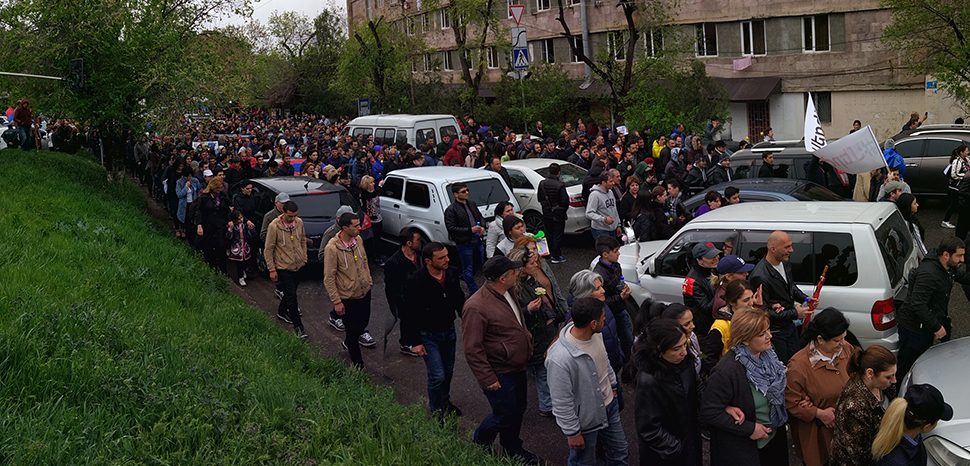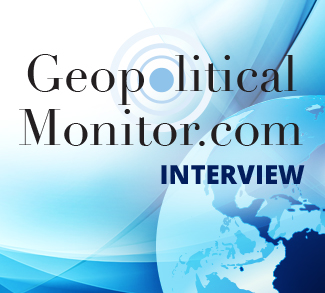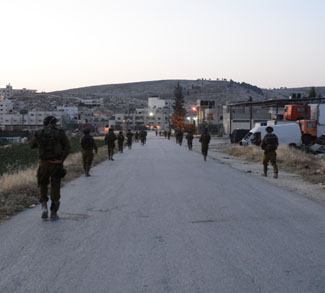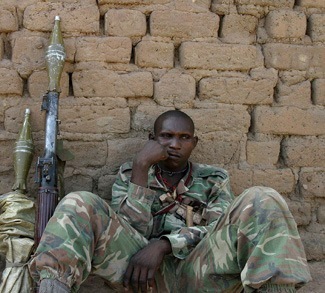April, 2018; Armenians demonstrate on the streets. The chief goal of the demonstrators is to put an end to Serzh Sargsyan’s rule, which has been autocratic for a long time, and to pave a way for a democratic future. On April 23, Sargsyan opts to resign in the face of public pressure. To commemorate the Armenian people’s victory in their fight for a democratic future, around 300,000 people showed up for a rally on May 2 in Yerevan. A democratic and prosperous Armenia was what the people wanted to see as their one and only aspiration.
Four years have passed now, but a democratic and prosperous Armenia has yet to arrive. Promises made during the Velvet Revolution may sound utopian today, but democracy is not only about promises. Human rights watchdogs warn that democracy and freedom of speech particularly are in danger in Armenia.
The story actually started shortly after the Velvet Revolution, despite the fact that many people would associate democratic backsliding with the disastrous war of 2020. When Prime Minister Nikol Pashinyan attempted to mobilize the public with his populist slogans to storm the judiciary institutions – only because they refused to carry out ‘top-down’ directives that wanted to prosecute the ‘old guard’ – many sane people started to sound the alarm. Although the efforts were unsuccessful in the short term, the State Security Service launched two criminal investigations against Constitutional Court Judge Hrayr Tovmasyan in October 2019. Tovmasyan was threatened with a “voluntary resignation” – if such a concept ever existed, by Prime Minister Pashinyan.
When the nation was drawn into a war with its neighbor Azerbaijan over the Karabakh region in September 2020, the Velvet Government was at the height of its strength. It took advantage of martial law by severely restricting the right to informational freedom. Then came a new censorship law. Amid the ongoing war, criticizing the government was legally outlawed in October. On the same day, a foreign journalist who was covering the conflict had his accreditation cancelled due to a narrative-damaging piece he had written.
But wars have always served as a yardstick for democratic governance. To criticize the Armenian government for suppressing the media during the armed conflict when any other state would have done the same thing would be unfair.
The methods the Armenian government has used and continues to employ in order to intimidate its opponents are what should be criticized. Because any criticism of the Prime Minister’s handling of the war was met with swift intolerance by the ruling administration. The toxic discourses that soon gained appeal among the population go hand-in-hand with this extreme intolerance. The Pashinyan government and its supporters believe that the former regime was the reason why the war occurred, while former regime members only blame the Commander-in-Chief, namely Prime Minister Pashinyan, for what they refer to as “the worst days of Armenian nationhood and statehood.”
After the ruling regime won the snap elections in the summer of 2021, things began to shift quickly. The ruling regime resumed its interrupted task of finding “the enemies of the people” – a process that reminds of the Stalin purges – with increased speed after receiving what Prime Minister Pashinyan calls an “iron mandate” from his people. The representatives of the Armenian diaspora communities living in various countries around the world were one of the initial targets in this fight. For instance, the authorities in Yerevan refused to let Mourad Papazian, the chairman of an Armenian diaspora organization in France, enter the country in July 2022. Papazian, who has never committed a crime, was solely prohibited from entering Armenia due to his alleged involvement in anti-Pashinyan protests in Paris in 2021.
The blacklist of Prime Minister Pashinyan does not stop with Papazian. At Zvartnots airport on August 1, Armenian security personnel approached two Dutch-Armenians – Massis Abrahamian and Suneh Abrahamian, and informed them that they had been designated persona non grata in Armenia. Similar to Papazian, these two Dutch-Armenian diaspora activists were prohibited from entering the country because they spoke out against Armenia’s current government.
The list goes on. Raffi Hovhannisian, a former diaspora minister, opposition activist, and American-Armenian, was barred from entering Karabakh at the request of the Armenian government. Additionally, a number of Armenian journalists who primarily worked for publications that supported the opposition received similar bans against visiting Karabakh in a similar set-up.
Not every situation was as peaceful as those involving bans. On July 15, opposition figure Armen Grigorian fainted in court and later passed away. Grigorian was detained two months prior to his death for speaking out against the Armenian government. He was one of around 30 people who were found guilty of having dissenting political opinions. He was put in pre-trial custody for two months despite committing no crimes and despite lawyer and family concerns about his health; and as each day went by, his immune system got worse.
But it’s for two of the most recent cases that the Armenian National Security Service receives the best kangaroo court award. As a result of their public application to become citizens of Azerbaijan, a criminal case was initiated against two Armenian citizens on the grounds of “treasonous acts and espionage.” If there was ever a crime committed by these individuals, it was to use social media to request citizenship from another nation. The most appropriate comparison to this would probably be North Korean arrest warrants intended to capture and execute North Koreans who attempt to flee to South Korea.
In Armenia, the politicization of the judiciary was neither shocking nor unusual. But a tape leaked in June of this year was the final nail in the coffin. In the released tape, Gagik Jhangiryan, the former chairman of the Armenian Supreme Court, appeared to loudly threaten Ruben Vardazaryan, a member of the Judicial Council, to have him detained if he didn’t step down, even making the outrageous claim that “he [Jhangiryan] would never let Pashinyan’s bitter rival, Robert Kocharyan, become president.”
“The repressive measures against Pashinyan’s opponents are expected to get worse every day,” according to political analyst Stepan Danielyan. He argues that the current administration will find it difficult to maintain power if oppressive measures are not used. The present administration, according to political analyst Alexander Iskandaryan, is a pale imitation of the previous autocratic rule: “We have returned to before 2018, and Pashinyan is no different from Sargsyan and Kocharyan.”
Along with more orthodox tactics like detention and censorship, Pashinyan’s opponents have also been subjected to other forms of repression. Thus, as a result of research carried out by media specialists in Armenia, it was discovered in 2021 that the Predator spyware developed by an organization based in North Macedonia was employed against journalists and dissidents in Armenia, Egypt, and Saudi Arabia. But the Predator was not the only one; Artur Vanetsyan, the head of one of Armenia’s opposition blocs, claimed that the infamous Pegasus spyware was installed on his phones as early as 2021. After the Pegasus crisis, it appears that users who were interested in keeping tabs on Armenian journalists and opposition figures continued to use this tool. According to a study conducted by social media specialists working in Armenia in November 2022, Pegasus is still monitoring the leaders of media organizations and opposition figures in Armenia.
The Armenian opposition and civil society are concerned for a number of reasons today, not just the government’s increased use of anti-democratic methods. Their main concern is that the international community, particularly the European Union and the United States, does not give these instances enough, if any, attention. During the visit of the Lithuanian president to Yerevan in May 2022, a group of protesters held a demonstration in front of the official palace in response to the absence of Western powers’ condemnation of the conduct of the governing party. When protesters tried to address the president of Lithuania with photos of those who had been detained for their political views, the police violently dispersed them.
When looking back, it is regrettable to see how much Armenia has changed for the worse. Four years ago, people would chant in the streets, Mersi gez Pashinyan Nikol (Thank you, Pashinyan Nikol). Now, Yerevan’s main squares would only display signs that read “Nikol the Murderer” and “Nikol the Dictator.”
Having ups and downs in democracy-building efforts is not unusual. It is totally expected—and in some ways even normal—to witness how Armenia’s democracy has regressed at times of crisis when compared to major democracies across the world. Moreover, some mitigating factors were always there. For example, Armenia’s democratic future has always been further away than, say, Slovenia because of Armenia’s challenging geography, complicated history, and geopolitical circumstances. However, the claim that geography determines fate cannot be used to excuse breaches of human rights.
There is a crucial point to be made if Armenia is to be saved from swiftly reverting to the pre-2018 era: accepting personality cults for the good they have done while ignoring their flaws can never truly deliver democracy. Special gratitude goes to Pashinyan and his team for commencing a valiant campaign in 2018 and toppling an authoritarian, corrupt regime that only brought Armenians suffering and poverty. This does not, however, give Pashinyan the authority to create a new tyranny with democratic overtones. Western nations do have a distinct say in this. The Western nations, which are the most steadfast backers of Armenia’s democratic path, must make it explicitly and unmistakably apparent to the government that any further repression carried out in the name of the region’s alleged “bastion of democracy” would not receive support under any circumstances.
The views expressed in this article belong to the authors alone and do not necessarily reflect those of Geopoliticalmonitor.com




